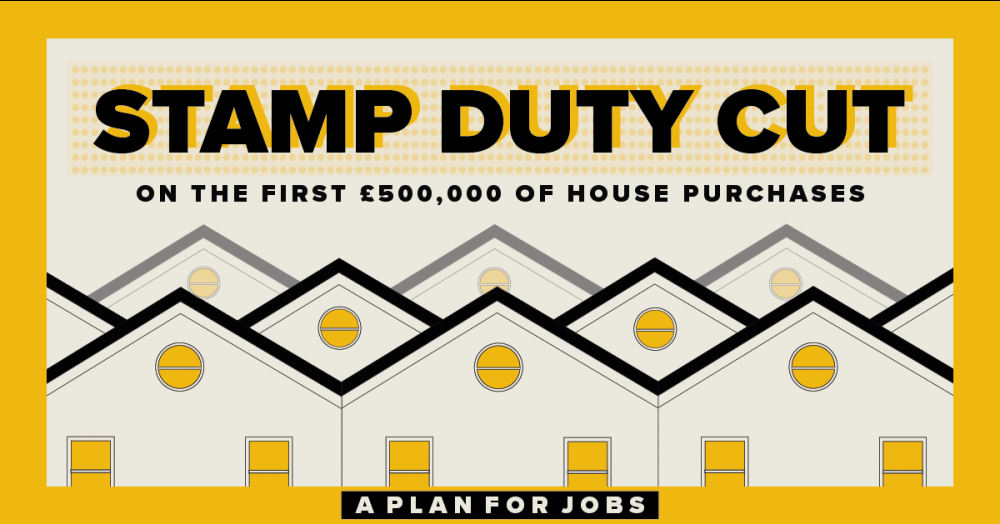Homebuyers won't pay stamp duty on the first £500,000 of a property's purchase price, in a temporary measure announced by the Chancellor.
The Chancellor Rishi Sunak announced recently he would be raising the stamp duty threshold to £500,000, while delivering his summer statement in response to the coronavirus crisis. The change takes effect immediately, and it will last until March 31st 2021.
He told MPs: "Today I am increasing the threshold to half a million pounds," before going on to add that, “Nine out of 10 people of main home buyers would pay no SDLT at all during this time."
Mr Sunak added that these people would benefit by saving £4,500 on average.
What is stamp duty?
Stamp duty land tax (SDLT) is a lump sum payment those buying a property or piece of land over a certain price have to pay.
Prior to last week, all house-buyers in England had to pay stamp duty on properties over £125,000, or if you were a first-time home buyer you did not need to pay stamp duty unless the property you were buying was more than £300,000.
The rate a buyer has to pay varies depending on the price and type of property - usually you would expect to pay more stamp duty if the property is worth more.
Landlords pay an extra 3% of stamp duty when they purchase a buy-to-let property.
Who will this benefit?
Both homebuyers and investors will benefit from this holiday, as the increased threshold means that they are both saving money.
You can use the table to work out the SDLT due:
For homebuyers:
Property or lease premium or transfer value - SDLT rate
Up to £500,000 - Zero
The next £425,000 (the portion from £500,001 to £925,000) - 5%
The next £575,000 (the portion from £925,001 to £1.5 million) - 10%
The remaining amount (the portion above £1.5 million) - 12%
For investors or second homebuyers (additional dwellings):
Property or lease premium or transfer value - SDLT rate
Up to £500,000 - 3%
The next £425,000 (the portion from £500,001 to £925,000) - 8%
The next £575,000 (the portion from £925,001 to £1.5 million) - 13%
The remaining amount (the portion above £1.5 million) - 15%
Rightmove reported a 22% jump in traffic to its site within 30 minutes of Rishi Sunak confirming the cut in his mini-Budget. The property search website said the cut would produce savings of up to £15,000 in some regions of the country.
The housing market has a knock-on effect on other parts of the economy – as well as everyone employed in the sector, people moving to a new house also support DIY shops and furniture shops. Estimates suggest moving to a new house drives spending equal to about 5% of the property’s value.
More information on the stamp duty holiday can be found on the government’s website
HERE.
If you’re not sure how this could affect you, or you’d like to take advantage of this fantastic news, please get in touch and we’d be happy to help you save money!

